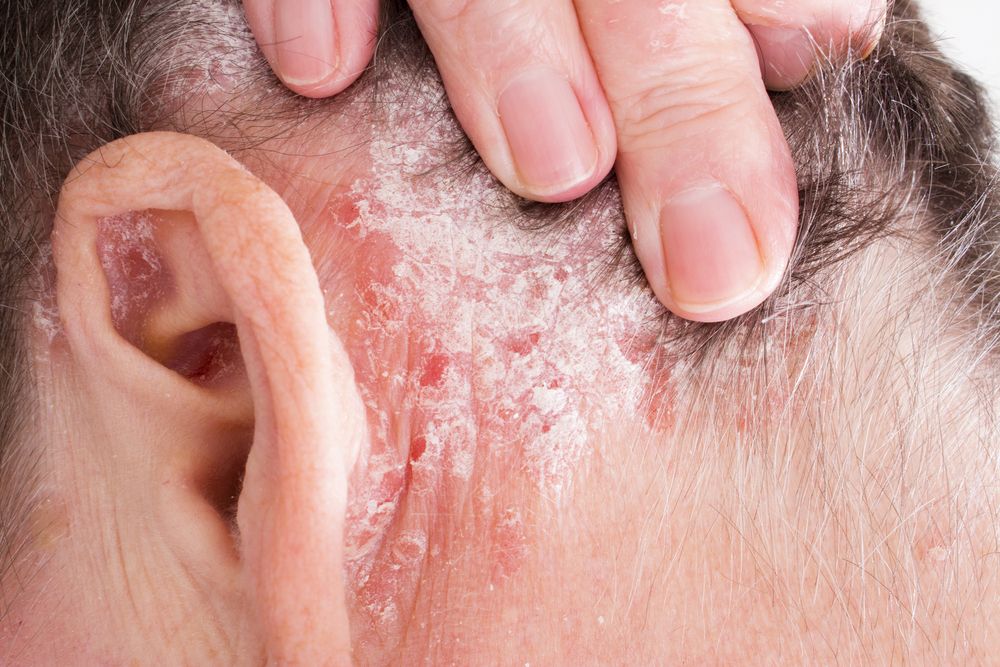- Acne
- Actinic Keratosis
- Aesthetics
- Alopecia
- Atopic Dermatitis
- Buy-and-Bill
- COVID-19
- Case-Based Roundtable
- Chronic Hand Eczema
- Chronic Spontaneous Urticaria
- Drug Watch
- Eczema
- General Dermatology
- Hidradenitis Suppurativa
- Melasma
- NP and PA
- Pediatric Dermatology
- Pigmentary Disorders
- Practice Management
- Precision Medicine and Biologics
- Prurigo Nodularis
- Psoriasis
- Psoriatic Arthritis
- Rare Disease
- Rosacea
- Skin Cancer
- Vitiligo
- Wound Care
Article
Measuring psoriasis severity: Mostly clear or clear?
Author(s):
Understanding measures of psoriasis disease severity is critical for the patient. And, many payers, including the Centers for Medicare and Medicaid Service require an accurate PASI or PGA score on all psoriasis claims.
Understanding measures of psoriasis disease severity is critical for the patient (and payer). (©Claudia PylinskayaShutterstock.com)

CHICAGOâWhen treating psoriasis patients, one of a dermatologist’s most important skills is being able to assess clinical data around medication efficacy. It’s an ability residents must learn before venturing off into independent or group practice.
At the 20th annual Residents Meeting for the National Psoriasis Foundation, Kristina Callis Duffin, M.D., a dermatologist from the University of Utah, discussed what residents need to know about various psoriasis assessment tools, including Psoriasis Area and Severity Index (PASI) and Physician Global Assessment (PGA).
“Residents have to be able to understand the data being published in clinical trials using PASI and PGA, and they need to know how to conduct these evaluations in their own practice,” she said. “If they’re prescribing a biologic, they must be able to determine the body surface area, and they need to be able to document and determine improvement in their patients.”
Understanding measures of severity is also critical, she said, because many payers, including the Centers for Medicare and Medicaid Service require an accurate PASI or PGA score on all psoriasis claims filed.
Mastering these skills is critically important, Dr. Callis Duffin said, because assessing psoriasis patients will be a common part of many residents’ future practices.
“Being able to do this is super important,” she said. “They need to know, if they’re going to treat people with psoriasis, they must be able to interpret clinical trial data, how effective certain drugs are, and how to document that in their notes.”
During her session, Dr. Callis Duffin gave residents a simple method for determining body surface area. One percent of body surface area is equal to one handprint. Additionally, she discussed the four areas of a PASI score, including redness, plaque thickening, and swelling on the head and neck, trunk, and upper and lower extremities. For residents who need help learning how to establish a PASI score, she recommended downloading and using the free smartphone GRAPPA app that will calculate a patient’s PASI and body surface area simultaneously.
Residents also learned about PGA scores and how dermatologists use them to more easily convey drug efficacy both to patients and other non-dermatologists. Categorizing patients as being “clear” or “mostly clear” rather than relying on a numerical PASI score can facilitate easier communication.
Overall, Dr. Callis Duffin said, residents should embrace learning these skills to offer patients the highest care level possible.
“As a resident,” she said. “You’re going to use them in practice.”
REFERENCE
Callis Duffin, K. “Measures of Severity,” 20th Residents Meeting National Resident Meeting, Chicago, Illinois, Oct. 20. 9:15-9:45am.
Newsletter
Like what you’re reading? Subscribe to Dermatology Times for weekly updates on therapies, innovations, and real-world practice tips.







